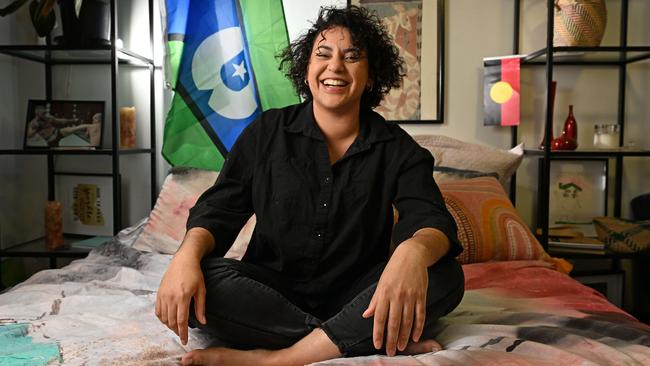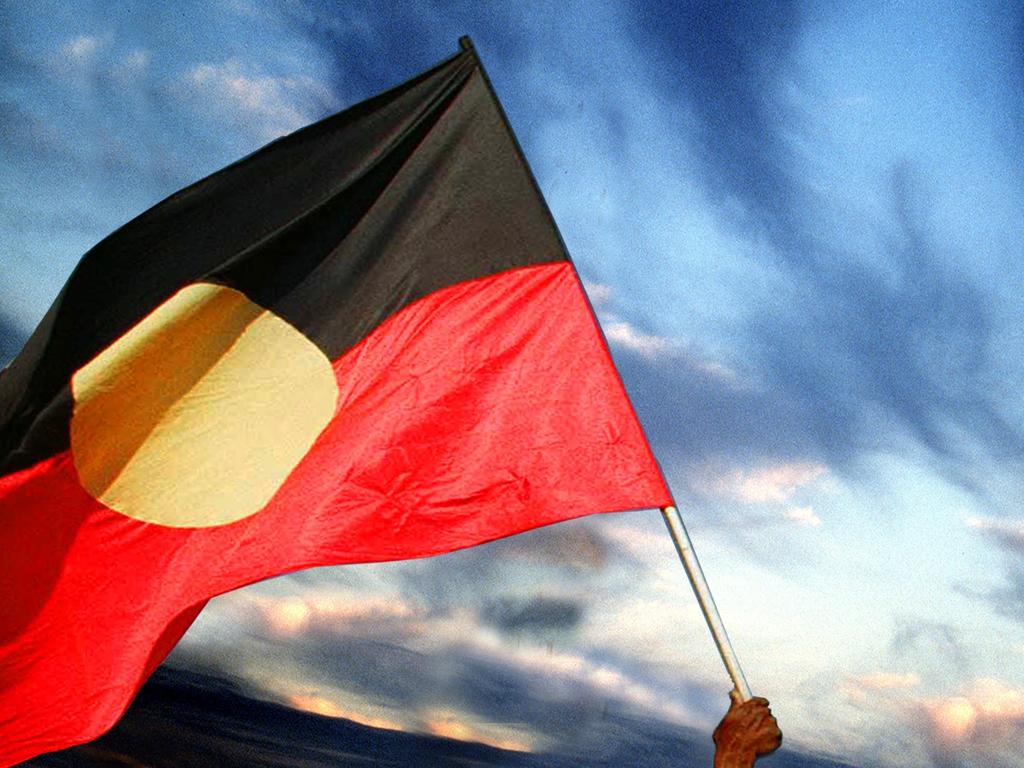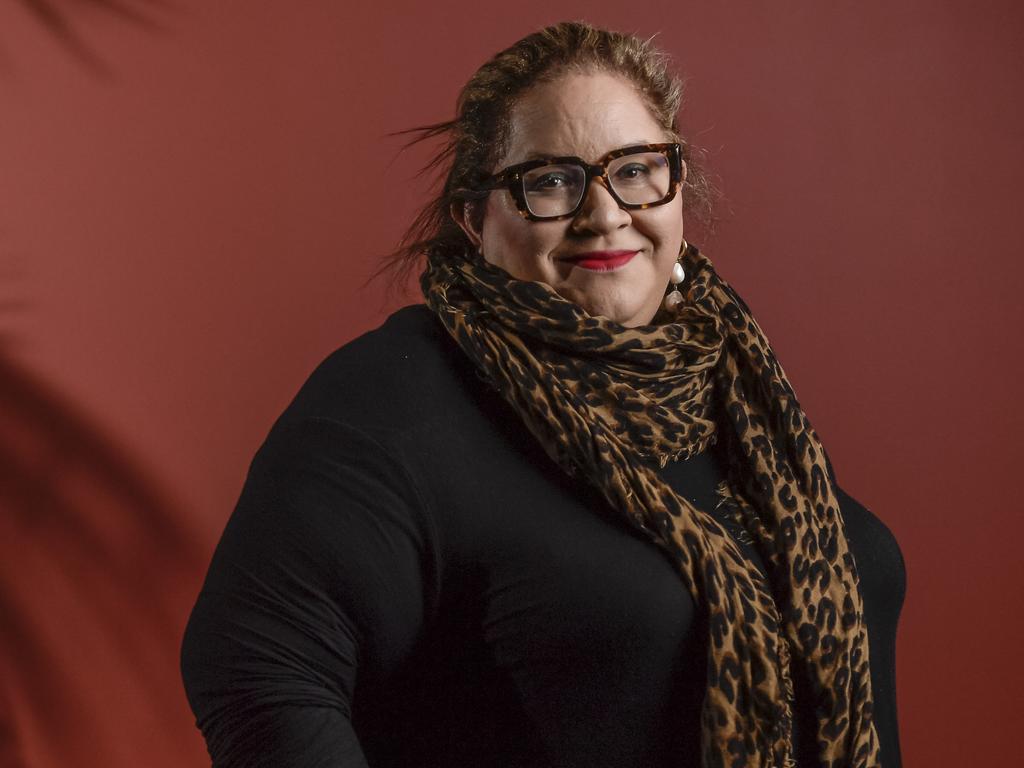Eddie Mabo’s granddaughter continues Ata’s legacy
Thirty years after the Mabo decision, the late Eddie Mabo’s granddaughter is part of a new generation of Indigenous Australians working in step with the ideals he fought for.

Thirty years since the High Court acknowledged the truth of the nation’s history in the Mabo decision, the late Eddie Mabo’s granddaughter is part of a new generation of Indigenous Australians working in step with the ideals he fought for.
Hannah Duncan was born four years after the Mabo decision that ultimately transformed Aboriginal and Torres Strait Islander people from supplicants in their own country to stakeholders. Mabo, from the island of Mer in the Torres Strait, has a place in history for exposing the myth of terra nullius. While he posthumously became a household name in Australia, to Ms Duncan he is Ata and a steady inspiration.
Most nights in her sharehouse, she reads law texts and stories about Indigenous Australia under the Torres Strait flag in her bedroom. Currently she is reading Chloe Hooper’s The Tall Man.
The 26-year-old thinks often of Mabo’s legacy and that of her grandmother – his widow Bonita – an educator and Indigenous rights activist who died in 2018.
They inspired her to become a lawyer. Her dream is to one day mediate on Indigenous issues.
Ms Duncan was fresh out of law school when she worked in the department of Australia’s first Indigenous cabinet minister, Ken Wyatt, in 2019.
She is now fast gaining experience and skills in two jobs – at a community law centre helping Brisbane pensioners and at the Queensland Human Rights Commission.
“I figured that if Ata – a man with a grade 5 education and a team of strong leaders behind him – was able to change the nation, how much more can we achieve with a higher education and positions of influence?” she said.
On Thursday Sir Gerard Brennan, who wrote the lead judgment in the Mabo case, died aged 94.
Cape York Institute founder Noel Pearson said Sir Gerard’s passing was a time of great sadness but also gratitude for his service. Mr Pearson said that when Sir Gerard wrote the immortal lines that the dispossession of the Aboriginal people “underwrote the development of the nation” he not only brought the country to the truth of its history but its very morality.
Sir Gerard’s judgment recognised that a group of Torres Strait Islanders led by Mabo were the owners of Mer, also known as Murray Island.
Over the previous decade, Mabo and others presented voluminous evidence that the eight clans of Mer had occupied their defined territories on the island for hundreds of years. They also proved the continuity of custom on Mer. The court held that native title existed for all Indigenous people in Australia.
The following year, the Keating government passed native title legislation.
The resources sector was hostile but eventually miner CRA – the forerunner to Rio Tinto – led industry acceptance of the new reality.
Though Mabo was a seismic shift, there were inevitable limits on what it could deliver to Indigenous Australians.
The impact of white settlement had wiped away continuous occupation and therefore native title rights in many places. In Western Australia, where vast swathes of the state including the capital city of Perth were the subject of lengthy litigation, successive state governments succeeded in settling Native Title in innovative ways.
Eddie Mabo’s lawyer Greg McIntyre SC sees these recent agreements as governments joining the ethical and legal position reached by the High Court 30 years ago.
Mr McIntyre is referring to the $1.3bn South West native title deal, described as the closest Australia has come to a treaty. The Barnett Liberal government negotiated the land and cash package instead of running an appeal against the state’s Noongar people in the Federal Court.
The deal turns over select parcels of crown land to Noongar organisations, places money in trust for job-creating projects and guarantees that national parks will be jointly run with Aboriginal organisations employing Aboriginal rangers.
Mr McIntyre also cited the recent Yamatji deal in the midwest of WA in which the McGowan Labor government settled four native title claims at once over 48,000sq km of land and waters in the Geraldton region where farming and mining coexist.
The deal creates a Yamatji Land Estate through the transfer of about 134,000ha of Crown land as managed reserve and 14,500ha as freehold or conditional freehold.
The Yamatji deal was struck by former WA treasurer Ben Wyatt, an Indigenous man who now works as a company director in the resources sector.
Mr Wyatt says the depth of colonial fractures is great but Native Title “gave a formal platform for coexistence with Aboriginal people”.
Mr Wyatt said Mabo was foisted on a reluctant Australia and there was opposition to the idea that the state would have to cede to Aboriginal rights.
“What is really behind the story of Mabo and the Native Title Act is that while the property rights it granted were relatively weak, what it has done is it has given governments and corporate Australia a recognition that these rights need to occur,” he said.
“It has meant agreements that are more extensive than the strict legal rights in Mabo and the Native Title Act.”







To join the conversation, please log in. Don't have an account? Register
Join the conversation, you are commenting as Logout